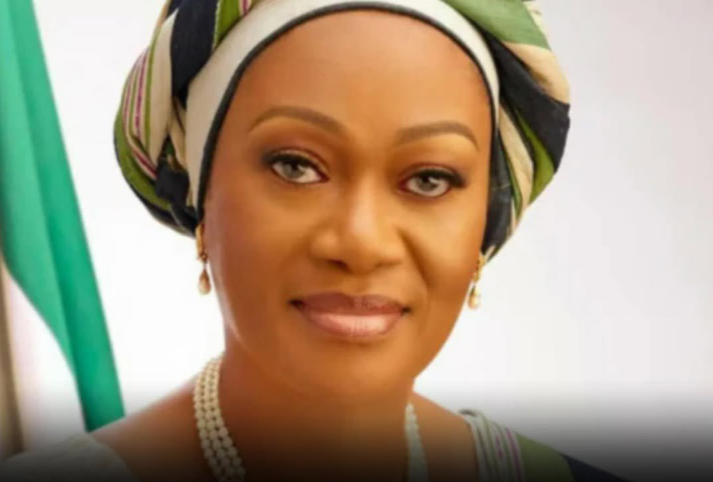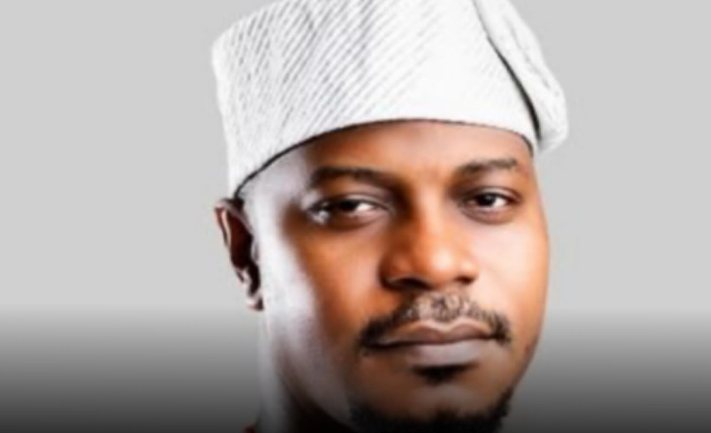
Nigeria Will Stand: First Lady Oluremi Tinubu’s Bold Assurance Sparks Renewed Hope at Abuja Thanksgiving Service

Nigeria’s capital city, Abuja, was charged with emotion, faith, and patriotic reassurance on Sunday as First Lady Senator Oluremi Tinubu sent a powerful message to the nation: Nigeria will not break up. Her declaration, delivered during a Thanksgiving service at the Methodist Unity Cathedral, came at a time when many citizens are anxious about the country’s worsening security challenges, economic strain, and increasing calls for restructuring. Yet, standing firmly on her conviction, the First Lady insisted that despite the storms, Nigeria’s unity remains non-negotiable.
Though she was unable to attend the service in person, Tinubu was represented by the Executive Secretary of the Nigerian Christian Pilgrim Commission, Bishop Stephen Adegbite, who delivered her message with confidence and spiritual conviction. The event, organized to honor the investiture of Most Rev. Sunday Onuoha as Archbishop on Special Duties, brought together religious leaders, politicians, and citizens seeking encouragement and direction in turbulent times. The moment Tinubu’s message was read, the hall was filled with nods and murmurs of agreement, as her words seemed to echo the frustrations and hopes of many Nigerians.
She declared that Nigeria’s destiny and stability rest solely in God’s hands and urged citizens to strengthen their prayers for the nation, the Church, and its leaders. Her message carried a tone of both reassurance and caution, reminding Nigerians that the current trials must not break the collective spirit of unity. “Nigeria will not disintegrate. Nigeria will remain one indivisible entity. God will be with Nigeria. We shall celebrate Christmas in peace and joy, and it shall be well with the nation,” she affirmed, offering hope as the year approaches its end. For many in attendance, her words felt like a needed balm, especially as fears over insecurity continue to grip communities across the country.
Her congratulatory message to the newly installed Archbishop Sunday Onuoha highlighted the significance of spiritual leadership at a time when the country is in desperate need of moral direction. The First Lady commended the Archbishop’s new assignment, emphasizing that the Church must continue to serve as a beacon of hope, a voice of conscience, and a force for unity. Beyond the spiritual undertone, the First Lady’s speech subtly acknowledged the importance of both faith and action, echoing the widely held belief that Nigeria’s revival requires collaboration between government, religious institutions, and the people themselves.
Deputy Speaker of the House of Representatives, Benjamin Kalu, who was also present at the service, expanded the discussion from spiritual reassurance to practical national concerns. Addressing the congregation, Kalu emphasized the urgency of strengthening Nigeria’s global partnerships in order to confront its growing security crises. From insurgency in the North-East to banditry in the North-West, kidnappings across the country, and violent clashes in various regions, Nigeria’s security architecture has been stretched thin. Yet, Kalu stressed that accepting assistance from the international community does not amount to surrendering the country’s sovereignty.
He noted that President Bola Tinubu’s administration remains committed to international collaborations that enhance national development without compromising independence. According to him, these partnerships—whether in intelligence, technology, or resource-sharing—are critical to restoring stability. Kalu insisted that Nigeria’s problems require the involvement of every stakeholder, warning that ignoring global cooperation would limit the country’s ability to defeat criminal networks that are increasingly sophisticated and transnational in scope.
He further underscored the indispensable role of the Church in promoting peace, unity, and development. As national tensions rise and trust in political leaders continues to waver, Kalu pointed out that faith institutions remain one of the few stabilizing forces in the country. He encouraged religious leaders to continue offering messages of healing, hope, and forgiveness, arguing that these values are essential for rebuilding trust and encouraging dialogue. In his remarks, he praised Archbishop Onuoha’s dedication to peacebuilding, calling him a bridge between the Church and the state whose efforts have helped strengthen social cohesion in several communities.
For many Nigerians, Sunday’s event was more than just a Thanksgiving service—it was a convergence of faith and politics at a moment when the nation appears to be standing at a crossroads. The First Lady’s declaration about Nigeria’s indivisibility touched on a deeply emotional core. At a time when conversations about secession, marginalization, and regional autonomy are resurfacing in different parts of the country, her words served as a reminder of the shared history and destiny that bind the nation together. Whether this reassurance will translate into renewed trust in government is yet to be seen, but it offered a moment of collective reflection and national pride.
The significance of the venue—the Methodist Unity Cathedral—was not lost on many either. For a country whose religious landscape is often divided along denominational, regional, and political lines, the emphasis on “unity” served as a symbolic backdrop to the First Lady’s message. The gathering demonstrated that the Church still plays a critical role in shaping public perception, guiding national dialogue, and influencing moral direction. In times of crisis, Nigerians often turn to religious institutions for clarity, comfort, and direction, and Sunday’s service reinforced that tradition.
As Nigeria continues to battle multiple fronts—from inflation and economic insecurity to political divisions and rising violence—the calls for peace, unity, and prayer from leaders like Tinubu and Kalu strike a chord with citizens who are yearning for stability. While critics may argue that speeches alone cannot solve the country’s problems, the sentiments expressed on Sunday remind the nation that unity, both in thought and action, remains a powerful weapon.
The event closed with prayers for the nation, its leaders, and its future, capturing a collective desire for healing and progress. As Christmas approaches, the First Lady’s assurance that Nigerians will celebrate the festive season “in peace and joy” serves as both a promise and a challenge—an invitation for citizens to hold onto hope, strengthen communal bonds, and believe in the possibility of a better Nigeria.
In a nation that has endured decades of turbulence, the declaration that Nigeria will not break up stands out as a bold reaffirmation of unity. And as the voices of both political and religious leaders harmonize on the need for cooperation, peacebuilding, and global engagement, Sunday’s Thanksgiving service may well be remembered as a symbolic moment when hope was rekindled, and faith in Nigeria’s future was renewed.


